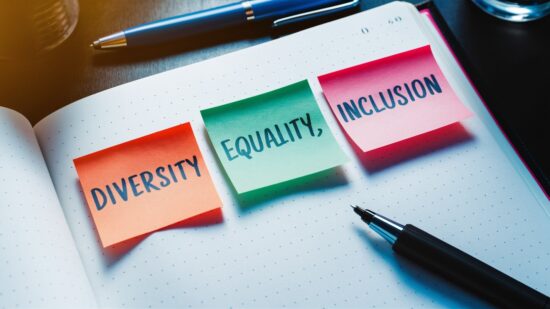In today’s dynamic workplace, the importance of Diversity, Equity, and Inclusion (DEI) cannot be overstated. Organizations are increasingly recognizing that fostering a culture of inclusion is not just a moral imperative but a strategic one as well. However, for DEI efforts to succeed, leadership must play an active and intentional role. Inclusive leadership goes beyond passive support; it requires commitment, action, and accountability. Carolyn Kossack believes that leaders hold the key to creating environments where all employees feel valued and empowered to contribute.
Understanding the Role of Inclusive Leadership
Inclusive leadership begins with self-awareness. Leaders must take the time to examine their own biases, assumptions, and behaviors. This introspection is a critical first step in understanding how their actions and decisions impact others. A leader’s willingness to challenge their own perspectives creates a foundation for fostering a workplace that values diversity and equity.
Beyond self-awareness, inclusive leadership involves actively listening to and engaging with diverse voices within the organization. Employees bring unique experiences and viewpoints that, when embraced, can lead to innovation and growth. Leaders who cultivate open lines of communication and seek to understand the needs of their teams build trust and credibility. This process involves not only soliciting input but also taking action based on feedback to demonstrate a genuine commitment to inclusion.
Creating Opportunities for Equity
Equity is at the heart of inclusive leadership. It requires leaders to identify and address systemic barriers that prevent employees from accessing opportunities on an equal footing. This goes beyond offering equal treatment; it involves creating tailored solutions that meet the unique needs of individuals. For example, mentorship programs can be designed to support underrepresented employees in advancing their careers. By prioritizing equitable opportunities, leaders can help level the playing field and foster a sense of fairness.
One of the most significant challenges leaders face is addressing unconscious bias. Biases can influence decisions related to hiring, promotions, and team dynamics. Inclusive leaders take proactive steps to identify and mitigate these biases. This might include implementing structured interview processes, providing bias training, and regularly reviewing policies to ensure they align with DEI goals. While this work can be uncomfortable, it is necessary for building a truly inclusive workplace.
Building a Culture of Belonging
Belonging is a cornerstone of inclusion. Employees who feel a sense of belonging are more likely to be engaged, productive, and loyal. Leaders play a pivotal role in creating environments where employees feel accepted and valued for who they are. This involves recognizing and celebrating the diverse identities and contributions of all team members.
Inclusive leaders foster belonging by modeling inclusive behaviors. This includes acknowledging and addressing exclusionary practices or language, as well as championing diversity in team-building activities and organizational events. When leaders set the tone for inclusivity, it sends a powerful message that everyone has a place within the organization.
The Power of Accountability
Accountability is essential for the success of DEI initiatives. Inclusive leaders understand that achieving meaningful progress requires clear goals, measurable outcomes, and regular evaluation. Establishing metrics for DEI allows organizations to track their progress and identify areas for improvement. These metrics might include representation data, employee satisfaction surveys, or the success of diversity-focused programs.
However, accountability goes beyond numbers. Leaders must also hold themselves and their teams accountable for upholding DEI principles. This includes addressing behaviors or practices that undermine inclusivity and ensuring that DEI goals are integrated into performance evaluations and organizational strategies. By demonstrating accountability, leaders reinforce the importance of DEI and inspire others to take ownership of their role in fostering an inclusive culture.
Empowering Future Leaders
Inclusive leadership is not just about the present; it’s about shaping the future. Leaders have a responsibility to develop and empower the next generation of diverse leaders. This involves creating pathways for advancement and providing mentorship and sponsorship opportunities. By investing in the growth of underrepresented employees, organizations can build a pipeline of future leaders who reflect the diversity of the workforce.
Leadership development programs that prioritize DEI principles are particularly effective. These programs can help employees develop the skills and confidence needed to succeed in leadership roles. Inclusive leaders also advocate for policies and practices that support work-life balance and address the unique challenges faced by different demographic groups. These efforts not only enhance individual growth but also contribute to the long-term success of the organization.
Leading by Example
Ultimately, inclusive leadership is about leading by example. Actions speak louder than words, and leaders who embody the values of DEI set the standard for their teams. This includes being visible and vocal in their support for diversity initiatives, participating in DEI training, and demonstrating empathy and respect in all interactions.
Inclusive leaders recognize that their behavior has a ripple effect throughout the organization. When employees see their leaders prioritizing DEI, they are more likely to follow suit. This creates a culture where inclusion is not just a program or initiative but a core value that shapes every aspect of the organization’s operations.
The Ongoing Journey of Inclusive Leadership
Fostering an inclusive workplace is an ongoing journey that requires dedication and adaptability. Inclusive leaders understand that the work is never truly finished; there is always room for growth and improvement. By staying informed about emerging DEI practices and maintaining an open mindset, leaders can continue to drive progress and create lasting change.
The journey of inclusive leadership is both challenging and rewarding. It requires leaders to embrace discomfort, confront biases, and take bold actions to create a more equitable and inclusive workplace. However, the impact of these efforts is profound, transforming organizations into spaces where everyone can thrive. Through their commitment to DEI, leaders not only enhance the lives of their employees but also contribute to a more just and equitable society.
